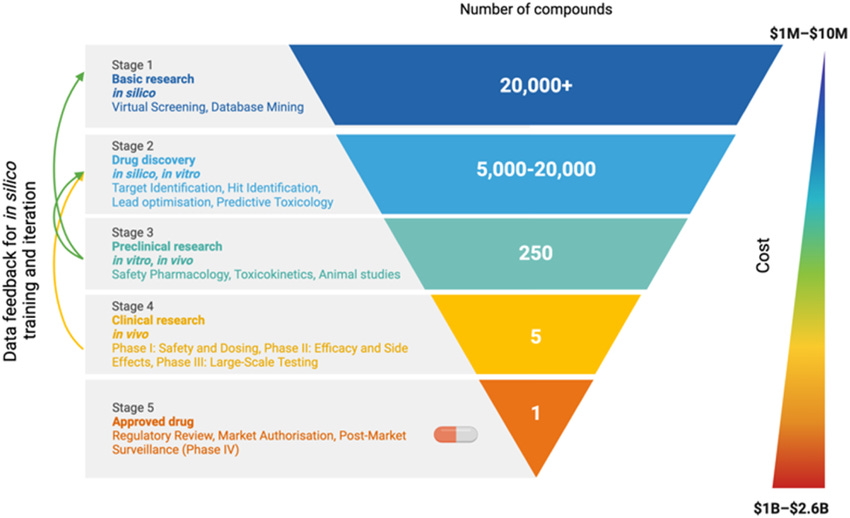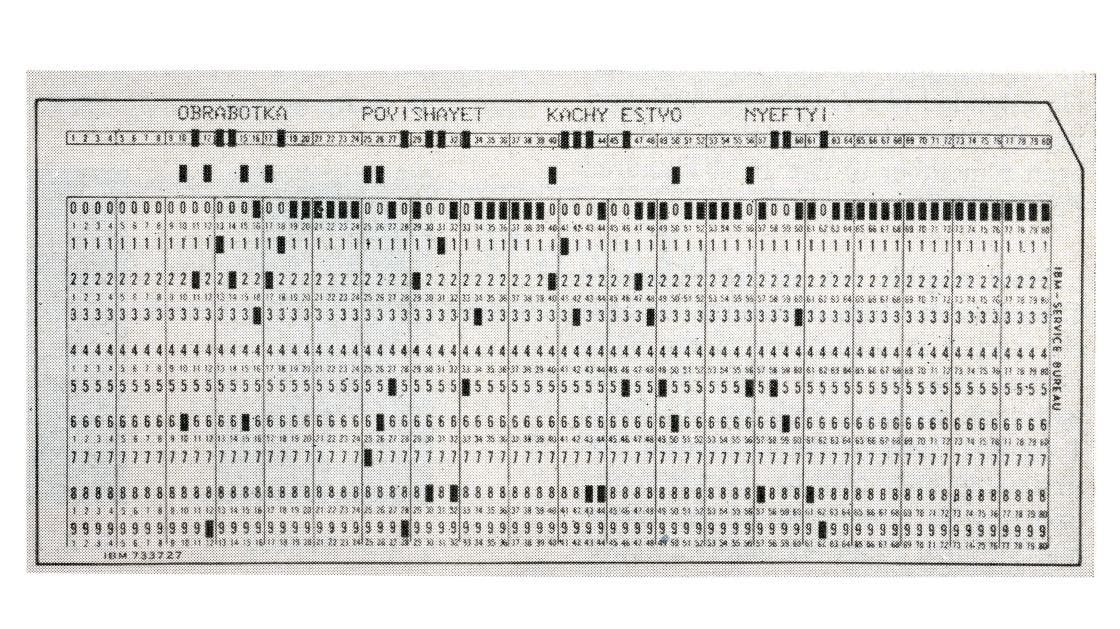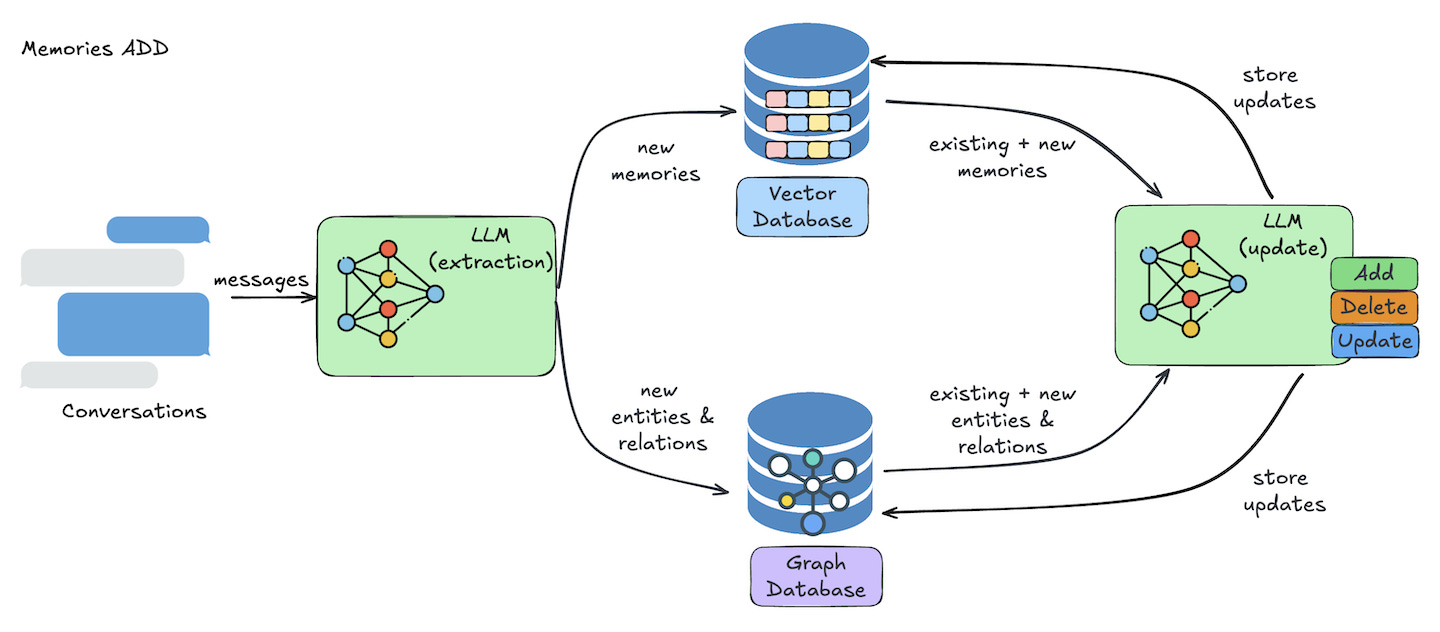Intro
We are on the precipice of a very amazing point of human history. In fact, the future is already here. However, my experience in biotech makes me wary that we humans are the bottleneck.
Most work will be automated, leaving you time to create new things. But it will take 5+ years to build out this future—not because the technology isn't ready, but because we aren't.
Biotech Sucks and is Representative of Human Slowness
My first job out of college was in biotechnology. I was originally inspired by biotech and the promise of innovative genetic medicines and life-changing therapies. From afar, it appeared to me that we were at an inflection point in biotech. So much of it is manual, lab work and can be automated through the use of computation and AI. New medicines would be discovered entirely without humans.
There are pioneers in the field pushing for “tech-bio,” a way of saying that the software is what’s really pulling the cart. I was inspired by leaders like Robert Nelsen of ARCH Venture Partners pushing to
“Transition biotech from analog to digital.”
This mantra replays in my head often. Not just in biotech, but across the entire world. So much of the world is manual. If we can digitize it, we can automate it. This will be one of the pillars of Irreverent Capital.
Automated Drug Discovery Bottlenecked by Red Tape
Companies like AbCellera (NASDAQ:ABCL) promised to use AI to automate drug discovery. Rather than humans sifting through potential drug candidates, we would use massive amounts of computation to do it. It was a very exciting goal. After a year on the job, my naivety soured. Biotech is a unique industry with regulatory and cultural challenges of its own. I realized that even if these drug discovery companies were successful, they would get snagged by human problems. We are the bottleneck.
Culturally, scientists look down on outsiders in the industry. Wide-eyed techno-optimists who saw no impediments to automating businesses in software get punched in the face entering an industry dominated by red tape.
Even if you discovered 20,000 viable and promising drugs, you wouldn’t be able to push them all through. You would need to pay $30 million in your first clinical trial for one drug, and that would take years.
While technologies like AlphaFold hold great promise, AbCellera’s stock is now down 97% from its IPO and I am no longer working in biotech.
The tech is here, but humans hold it back. There is no way this thing gets fixed. Our over-structured world optimized for the 1900s needs to be redesigned from scratch.
Silicon Valley is a Counter-Cultural Movement
It is not always apparent, but Silicon Valley, at its core, is a counter-cultural movement. Fed up with bureaucracy, people choose another path. Computers aren’t irrational. If you can code it, it’s real. Before that too became over-regulated, it was the new frontier that attracted young and ambitious people to build the future before the older generation figured out how to capture it.
The above story is not just found in biotech. It’s found in Hollywood, many parts of finance, crypto, and even academia, which is supposed to protect the pursuit of truth. Whenever humans enter the mix, everything gets fucked up.
The Age of AI
I’m not going to call it the intelligence age, because it’s not clear what that even means. What we can be sure of, however, is that the narrative will be consistent with history. What AI will represent is the ability to automate the world. In many cases, this will mean automating existing companies and processes (think like call centers). What I am excited for, however, is the prospect of re-thinking processes from scratch with AI at its core (more on this in the next essay with a new project in the pipeline).
Yep, exactly like that.
The Future is Already Here
I’ll catch up with my friends back in the midwest and play video games together sometimes. It is clear that we are living in two different realities.
The future is already here, and most people think it’s a chat bot. To me, this is something that has built entire products with me by my side. Something so “smart” that it blows me away. It is a thinking partner. Whenever I have a big problem, I brainstorm with it. I ultimately make the decision, but the extra set of eyes is invaluable.
Once I have made a decision, I can direct these resources to stand up a product in 1 hour that can do what I want and then build another to coordinate with it.
I’m not sure what this type of work is, but this high-level coding feels like the skill of the future. I feel like I’m superman.
A Product or a Service
In the Age of AI, are we building products or services? It’s not entirely clear. What is Palantir building? Many people criticized its repeatability and questioned its valuation–is it simply consulting?
Frankly, I barely understand what Palantir does, but I think they are an important company because they are building out AI for companies. And it does seem to be somewhat sticky.
Automating Boring Work
In every technological paradigm, humans are able to harness increasing complexity, and this time is no different.
What Marc Andreesen meant when he said that software is “eating the world” is that software enabled us to organize the world. The world has been organized, and we can now automate a significant chunk of repetitive work.
I love that I can reference Politzki’s Law here. If competition is for losers, repetition is for computers. If everything in the world is organized and automated, you will create value by creating entirely new things.
Let’s reference some more Politzki family history here.
Punch Cards → Intelligent Decisions
My grandfather is one of the people I admire the most in the world. When he moved to the United States, he got a job writing punch cards, a very primitive form of programming. One layer of abstraction for memory for these gigantic machines.
He then programmed COBOL for banks. Abstractions for programming languages enable humans to manipulate increasing amounts of complexity with the move of a finger.
Memory punch card.
Today, I am also building memory and automations. Very similar solutions interestingly, however, the technology takes a drastically different form.
For instance, the memory that I am building more resembles the architecture of the human brain and is incredibly complex. I’ve never learned COBOL, but I can program it today through natural language alone. The leverage humans hold in 2025 is incredible.
Computers mastered organizing complexity through binary logic and if-then statements. Now we're at another inflection point: AI agents that can execute multi-step processes automatically. Further, they are able to make pretty damn good decisions using learned logic and reason. Often better than us.
So you could make an agent that looks up the best restaurants in the area, then that feeds into another to make a reservation for you. This is a simple automation, but if it works on these simple two-step processes, it will work on much larger processes as well.
Where are the Agents/Aliens?
I’ve built pretty amazing agents over the last several months. The question that I then have is where are the other agents? If we refer to the Startup Fermi Paradox I coined in the last essay, it is clear that the reason for this is that there have been certain limitations. Most of the agents I have seen are bullshit. But it’s not their fault.
These aren’t really becoming products. They are being built out internally. And the bottleneck is the humans. First off, it’s hard to communicate these products to non-technical business owners.
When I was working at Shaper, there was a company building out automations that did quite well. The demand was there. When I was selling into e-commerce, I saw similar demand. Today, there is increasing supply catching up with platforms like n8n. Pete Koomen of YC also told me he was optimistic about these platforms for building agents.
Like many technological cycles, the limitation is in technical proficiency and people who can actually build the damn thing. You should try to become the person who can actually build it.
The lesson that I’ve taken from all of this is to sell into developers.
Coding is the First Thing That Works
Coding is deterministic and logical enough at its core that the first agents that are working are coding agents like Cursor and Windsurf. They also provide another lens into the future in how they have used their early success and use on the platform to create a flywheel of product improvements.
In these logical domains, that do not have the messiness that is human existence, we can build things that work. I had come around to the importance of selling to developers when I was talking to a friend after a hackathon about an interesting idea he had (more on this in the next essay).
Many of the products I’m seeing, like Greptile, are automated code review and such, domains where agents are good enough that they can have some impact.
The CEO of Apify told me the simple version of this, “build the version of the product that AI is better than humans at.” Code is a perfect example of this.
The Future Will Take Time
OpenAI massively overspent trying to build AGI. The models are leveling off in performance. The bottleneck to progress is us.
It took about 40 years for the United States to transition from only 10% of households having electricity to 90%. Even though the technology existed, it was evenly distributed for a very long time. We really need to push people here to accelerate adoption.
Or simply the lesson here is that this business model will be very strong for the next 5-10 years.






